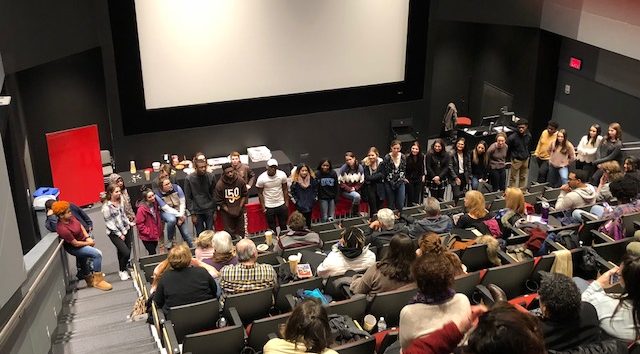Unfortunately, I found the film, Night and Fog, very hard to watch. I’m sure this is generally a tough film for pretty much anyone. Yet, for me, it felt significantly more difficult. Through the entire film I was reminded of the movie, which was originally a novel, Roots by Alex Haley. There is a plethora of scenes that can easily relate to Roots which made the film a hard watch.
For instance, the Jews were given identification numbers with letters while the slaves were branded with scorching hot metal. They were stripped of their own identity and only seen as a number. The Jews, in one scene, were lined up completely nude. I am not sure what the purpose of the line was but similarly, the Africans were changed up and transported and then sold, oftentimes not wearing any clothing either. Additionally, the Jews were thrown into the train cars, and I can only imagine how uncomfortable and congested that might have been. The slaves were thrown onto ships and they, too, were travelling in unreasonable conditions that were not comfortable. We also saw scenes of the malnourished Jews where you could see all the way to their bones just like the slaves that were not on a healthy diet. Finally, there were scenes of how the deceased were treated, whether it was burned, or just dumped into a pile with everyone else. There wasn’t any respect given in that regard and the slaves were treated in that way.
On another note, perhaps a more positive note, although it was hard to watch I did appreciate the way the film was done. It was a silent film, well not dialogue, but the music added another element. It sort of made you have to pay attention and you could not turn away for even a second. If you did, you would probably miss something. Thus I like how the film was done, even though it did bring great thoughts when I walked the film.
